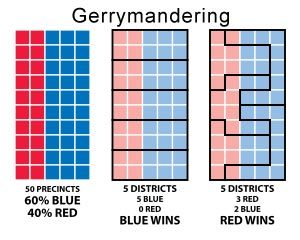
5 Unusual Election Terms Explained
Here you can learn about 5 slightly more unusual election terms that you may not have heard of. Many election terms date back centuries and have surprising beginnings, mostly in the form of animal references!
Pork Barrel
The use of public spending or government funds for projects that concentrate solely on a representative’s district. Pork Barrel politics are often used to increase support within a politician’s own district to create political support in the form of re-election or donations.
Pork used to be stored in barrels for later consumption and was used as a term for storing one’s money. A farmer could always be able to sell a barrel of pork after all. The term made its way into politics as a reference for politicians building up barrels of support that they could easily convert into votes when needed
Donkey Vote
In a system of proportional representation, it is a cast ballot that has not had any thought put into it but where the voter has just marked the candidate at the top of the ballot sheet and worked their way down. This term is most commonly used in Australia which used ranked voting and crucially where voting is compulsory. Donkey votes occur as a form of misinformed protest vote (as opposed to spoiling a ballot paper) where voters are expressing a degree of voter fatigue. Alternatively, a ballot appearing to be a donkey vote may actually represent a voter’s true choices. The election term donkey vote or voter was coined in the early-20th century simply referencing the stupidity of a donkey.
Although this term originates in Australia, it has appeared in the UK and US where voters have just cast their ballots for the first name on the list.
Lame Duck
Continuing the animal theme, a lame duck is an elected official who is still in office as their successor is chosen. The term is particularly common to describe outgoing presidents or congressional members. The term is traditionally reserved for candidates who have lost their bids for re-election. It has become increasingly common recently to describe outgoing presidents who are not running for re-election. On the one hand, lame ducks are often unable to govern. They lack the political support to initiate policy proposals or changes. This is evidenced by the refusal to consider former president Barack Obama’s choice for the empty Supreme Court position in 2016.
On the other hand, lame ducks still have the power to make controversial decisions. They may do so without fears of a backlash – such as pardoning convicted criminals or writing executive orders.
The term originally described a duck that could not keep up with its flock, thereby being left open to vulnerability but shifted its meaning in the 18th century to describe someone who defaults on their debts. The term was also used as naval slang for an old, slow ship and shifted into politics in the mid 19th century.
Whip
A whip is an extremely common term to describe the person whose job it is to keep party discipline. They are in essence, political enforcers within a party. They attempt to persuade parliamentary or congressional members to vote according to party lines. While in many countries around the world the job is left to the head of the political party themselves,
Just to make sure that there is an animal connection – the term originates from fox hunting in Britain. A ‘whipper-in’ would be used to keep their hunting dogs together in a pack.
Gerrymandering
Our final election term is the practice of shifting the boundaries of a district, with the aim of gaining an advantage in the polls. Gerrymandering is done to benefit the incumbent – those drawing the election boundaries. Districts would be re-shaped – expanded or restricted to include sections of pro-incumbent voters or to block out opposition supporter. By changing the boundaries, the incumbent would be able to influence the election.
The term was born when the Governor of Massachusetts, Elbridge Gerry redrew the boundaries of Massachusetts in 1812. The shape took the form of a mythological salamander, coining the term “Gerry-mander”.
In countries which use proportional representation, gerrymandering makes little or no difference to the outcome of the election. Countries like Canada or the UK combat gerrymandering with non-political third parties being responsible for the drawing of election districts.
Related
Latest Posts By Charles Harding
- 05.02.18We Welcome Two New Election Managers in the POLYAS Team
- 04.05.18Hungarian Parliamentary System: What you need to know for Sunday
- 03.07.18#ElectionNews: No Victor in Italy and a “Yes” to Fees in Switzerland
- 03.06.18Wolfgang Jung: “We weren’t Tekkies for long”
- 02.08.18Online Voting & Blockchain: “We’ve been using blockchain for a while”
